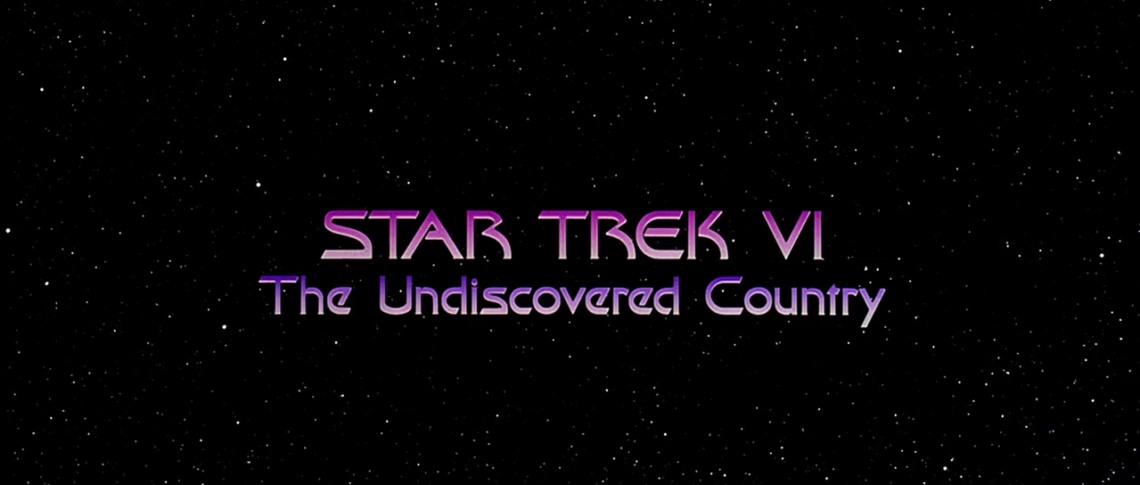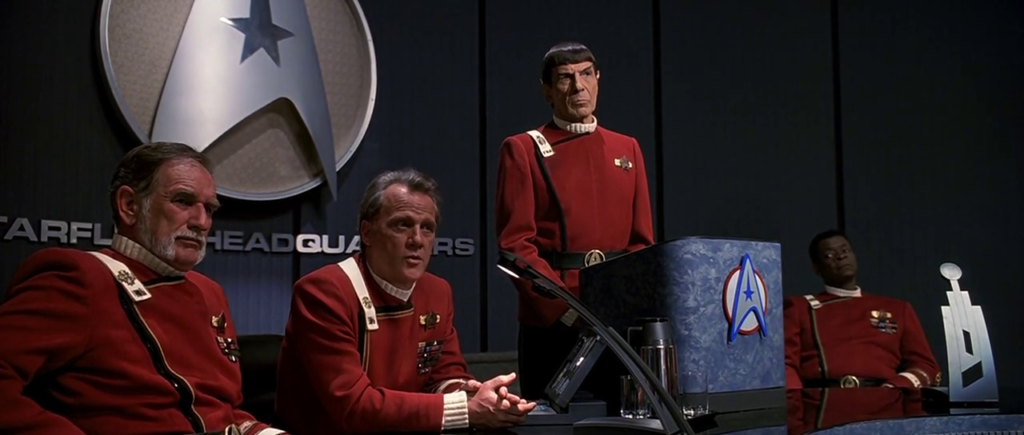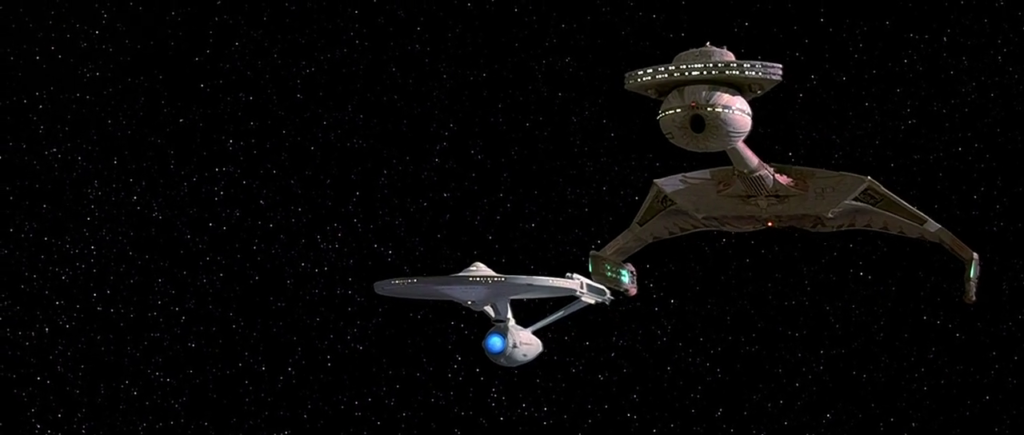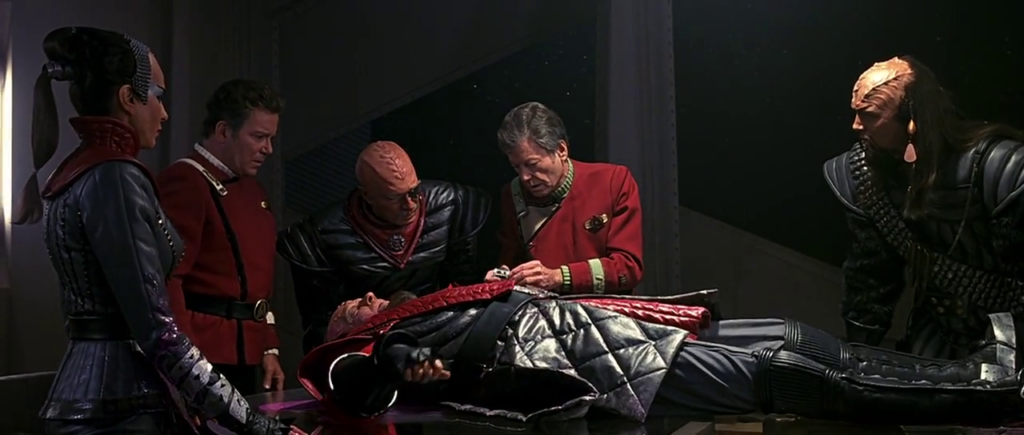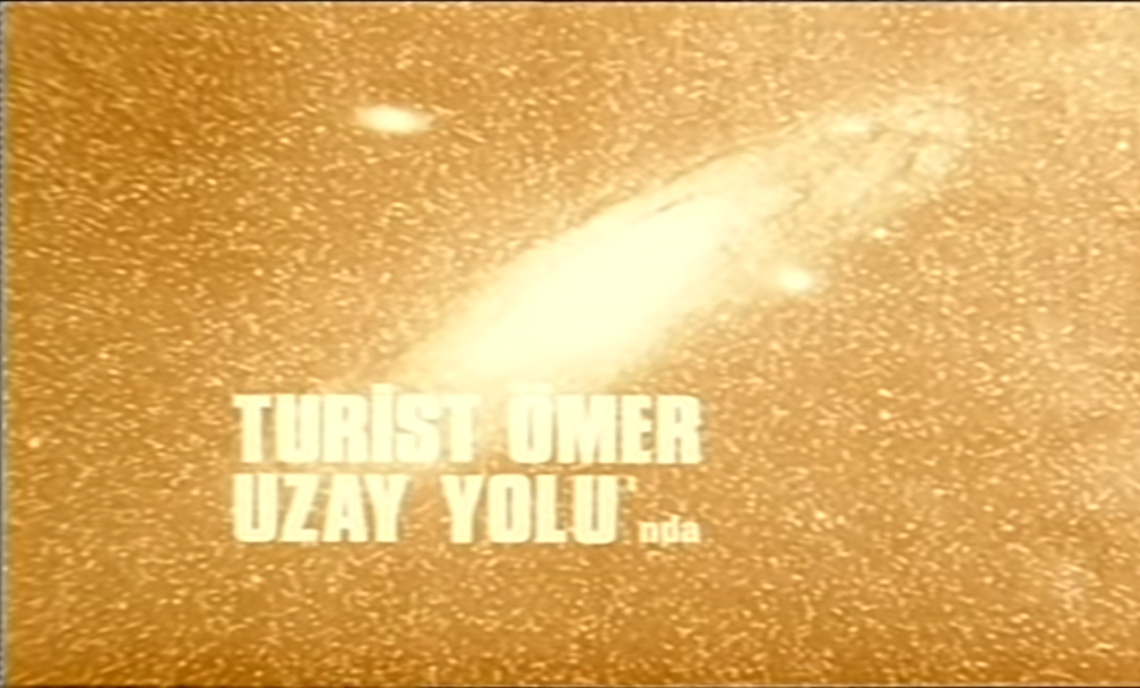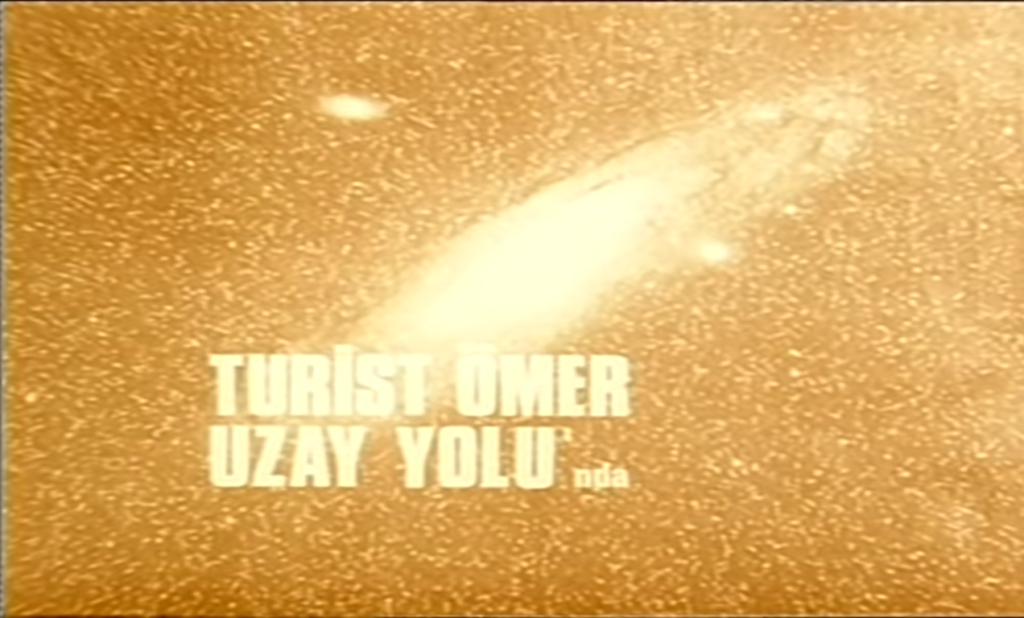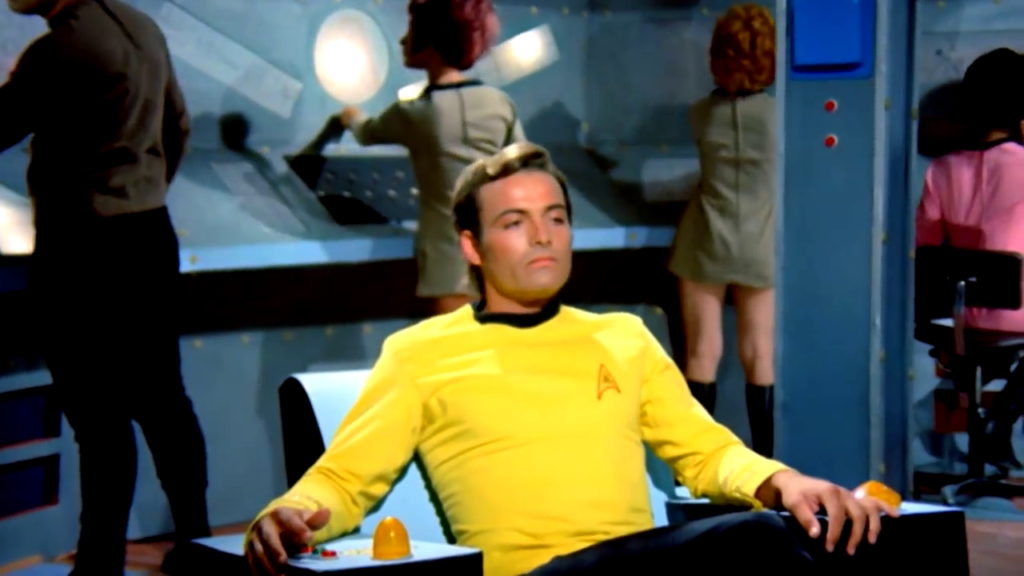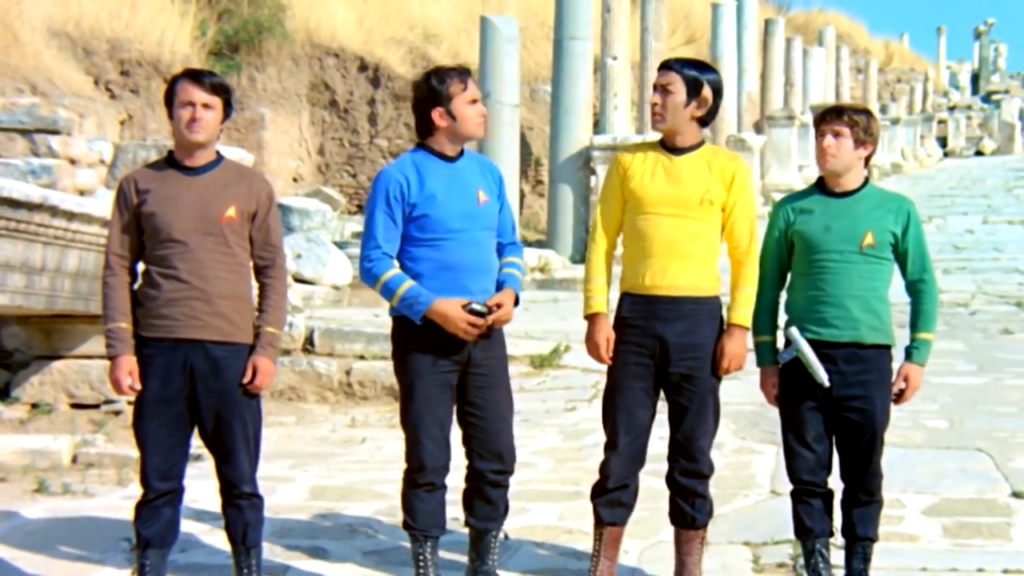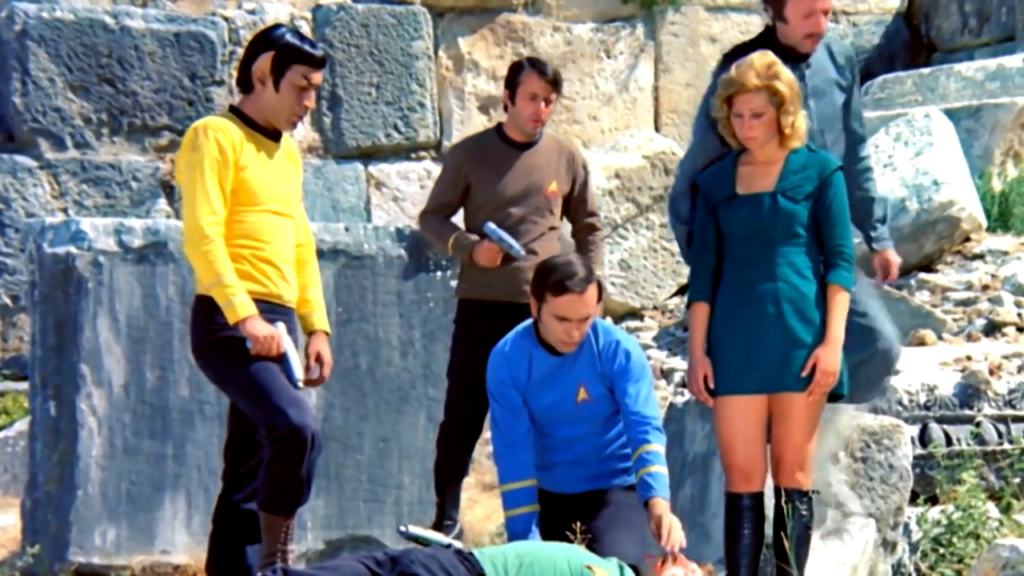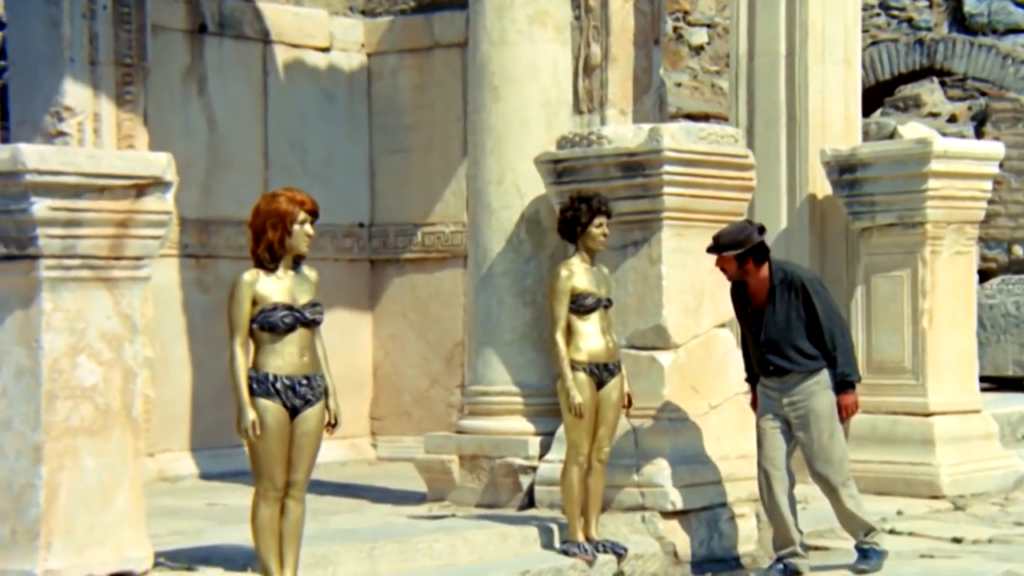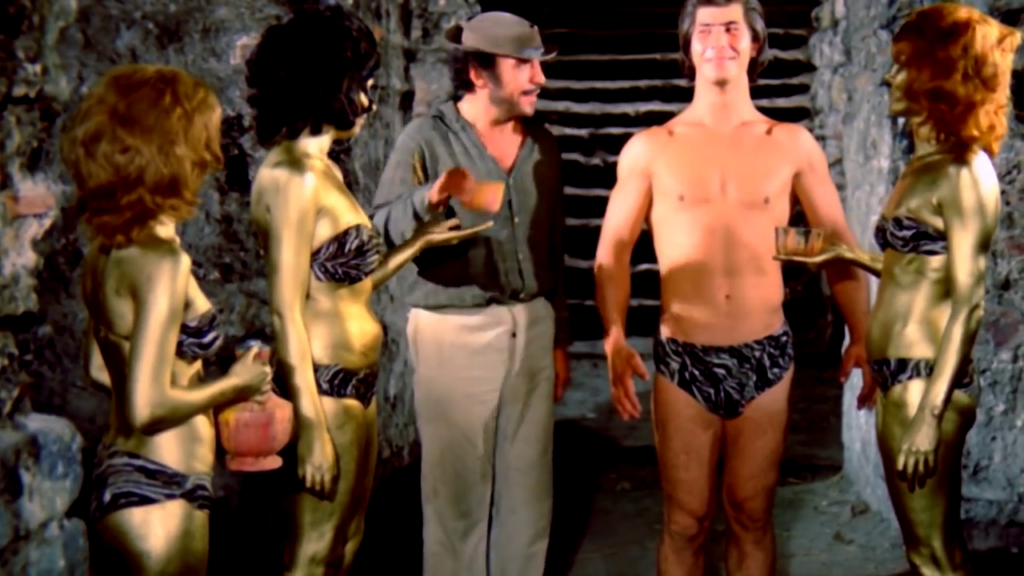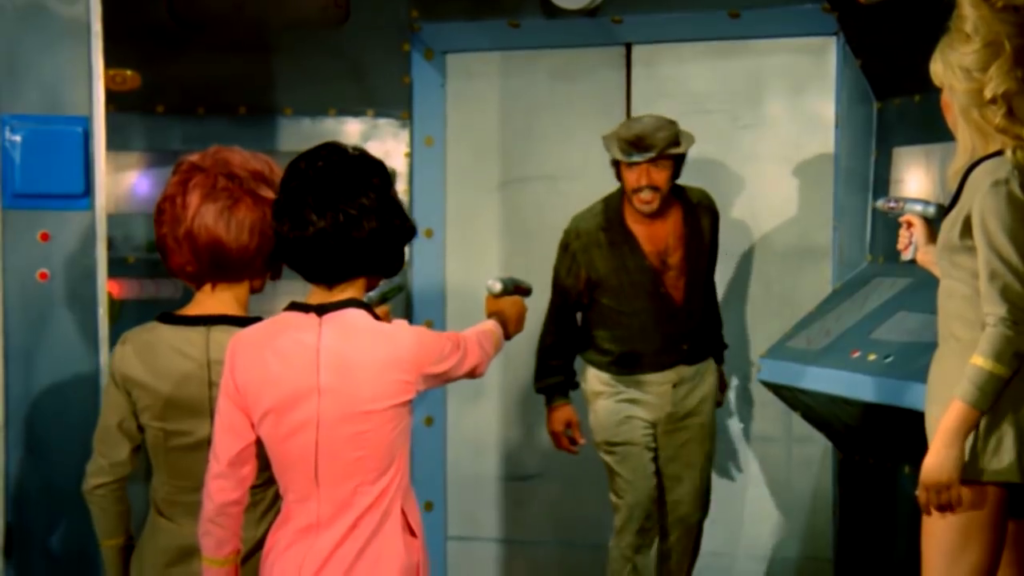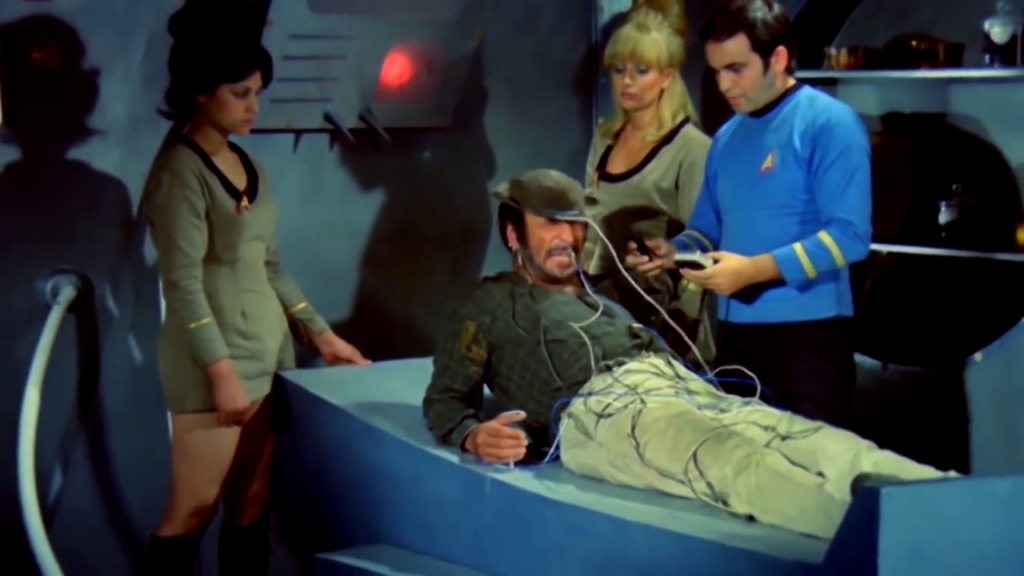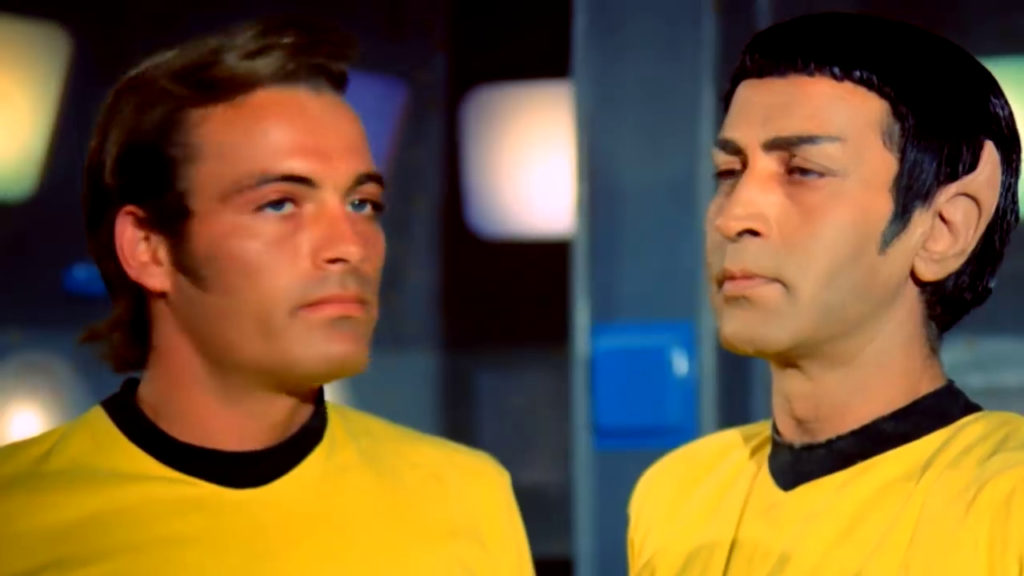-
#477 – Star Trek VI: The Undiscovered Country (1991)
Star Trek VI: The Undiscovered Country (1991)
Film review #477
Director: Nicholas Meyer
SYNOPSIS: Following an explosion on the Klingon moon of Praxis, the Federation and Klingon Empire move for peace talks. This sits uncomfortably with many people on both sides, including Captain Kirk himself, who still blames the Klingons for the death of his son. Kirk and the Enterprise are sent to meet the Klingon chancellor Gorkon to escort him to the peace conference, but Gorkon is assassinated, and all the evidence points to someone onboard the Enterprise is responsible. Kirk and Dr. McCoy are sentenced to hard labour, and Spock and the rest of the crew must find evidence to exonerate them and rescue their captain before full scale war breaks out between the Federation and the Klingon Empire.
THOUGHTS/ANALYSIS: Star Trek VI: The Undiscovered Country is a 1991 sci-fi film, and the sixth and final film featuring the cast of the original TV series. The film opens up with now Captain Sulu on the U.S.S. Excelsior, witnessing a huge explosion on the Klingon moon of Praxis. The moon was the source of the Klingon Empire’s power, and the resulting explosion will also deplete the Klingon homeworld’s ozone layer within the next fifty years. As a result, the Klingon’s offer peace talks with the Federation to resolve the long-standing war between the two. However, there are those on both sides who are still sceptical of any attempt of peace, including Captain Kirk, who still blames the Klingons for the death of his son. Spock volunteers Kirk to meet Klingon Chancellor Gorkon in the neutral zone, and escort him to peace talks on Earth, but Kirk is still less than pleased about the whole situation. The film has a pretty solid story, and it’s theme is explored through both the setting and the characters rather well. The story is obviously rooted in the time of the end of the cold war, and the uncertainty of the future now that these opposing sides are no longer enemies. Like much sci-fi, it’s reflection of contemporary affairs in the future allows the possibility to explore these affairs without being chained to “real” people or places. The story gets underway quite fast, and the crew are out of spacedock in about twenty minutes, which is nice. The film on the whole does have an operatic feel, and there are many scenes of protracted and extensive dialogue, with a lot of quoting classical literature between the parties. The awkward diplomacy attempts to create a tense atmosphere between the characters, and for the most part it works, but it could certainly feel a bit overblown and meaningless to viewers who can’t follow all of these quotes. That said, there’s a fair amount of more direct action and intrigue in the story too, so there’s plenty of substance throughout the film that maintains a good sense of pacing and entertainment.
Being the final film starring the original crew, The Undiscovered Country makes an effort to give the characters a good send off and resolve any loose threads. Kirk dealing with the loss of his son and blaming the Klingons is one such thread, but one that wasn’t really mentioned in the previous two films (which were a bit more comedic in nature, so it probably didn’t fit the tone). The rest of the crew are close to retirement, and so the scene is set as this being their final mission before they hand over to a new generation: this again being reflected in the story that forces the older characters to accept a new era. There’s a solid performance all-round as the characters engage in heavy dialogue, but also some low-key funny moments that aren’t shoved in your face like in Star Trek V. Lt. Valeris as the new character is fine, but her arc doesn’t really come to a conclusion, and her motivations by the end of the film are a bit vague. The same can be said of everyone who is trying to stop the peace talks: why do they want to continue as they are? Why are they working together? That part of things doesn’t tie up quite as neatly as it needs to. General Chang as the villain is pretty cool, but the fact that he speaks most of the time in classic literature quotes can get a bit distracting. Apparently some of the actors were unhappy with their characterisations: Shatner thought Kirk was portrayed as too prejudiced, and Michelle Nichols refused to say lines that alluded to racist undertones regarding the Klingons. With Kirk, I can totally see the problem with Kirk’s character: his hatred of Klingons does come a bit out of nowhere in the sense it isn’t really brought up in the two previous films, but you can also see why he would hate them after they killed his son. The drama-heavy tone of the film I suppose necessitated exaggerating these elements, and it definitely provides a character arc that Kirk works through to the other side to provide a message of hope. Gene Roddenberry, the creator of Star Trek, apparently also did not like these prejudices, as his vision of the future that Star Trek provides is one where such prejudices have been overcome. While I think some of the prejudices and attitudes the film presents are a bit out-of-character, I don’t think they disrupt the vision that Star Trek provides, and it definitely does a good job of reflecting contemporary attitudes and how people can struggle to deal with a changing world.
This film had a tough time getting made: after the poor reception of Star Trek V, the budget for this film was slashed, as it was seen as very much a risky venture. Scripts about a prequel, a film which essentially killed off the cast, and a crossover with Kirk meeting Picard (which eventually became Star Trek Generations) were proposed, but eventually the story was developed by Leonard Nimoy and Nicholas Meyer, who wrote Star Trek II. Given the tight budget, there’s a lot of sets and scenes set aboard the ship in low-light corridors and rooms to hide the lack of detail. This isn’t too much of a bad thing, as the dramatic lighting supports the drama-heavy script. There isn’t a lot of variety in the settings due to the aforementioned budget, but it makes do. As a result of all this, it definitely feels like an episode of the TV series, with most of the action being set on a ship, the dialogue heavy scenes, and the even pacing. With this in mind, despite a number of problems, The Undiscovered Country feels distinctly Star Trek, and provides a solid final outing for the beloved ship and crew. It is a bit overblown in it’s dialogue sometimes, and the prejudices and attitudes may seem a bit over-the-top to better serve the story, but at it’s heart it has a strong message, and ends the adventures of the original crew on a high note of hope.
-
#342 – Tourist Ömer Visits Star Trek (1973)
Tourist Ömer visits Star Trek (1973)
Film review #342
Director: Hulki Saner
SYNOPSIS: The U.S.S. Enterprise is visiting Professor Krater on a remote planet to collect some reports. While they are their one of their crew is killed, and Captain and his crew begin an investigation. The Professor wants them off the planet, and so uses a machine to transport a man to the planet who he will claim to be the murderer. Meanwhile on Earth, Ömer is being forced into a shotgun wedding when he is transported to the planet and taken into custody by Spock. However the investigation begins to get ever more complex, and even Spock’s patience begins to wear thin with the hyperactive Ömer running amok on board the Enterprise…
THOUGHTS/ANALYSIS: Tourist Ömer visits Star Trek (Turist Ömer Uzay Yolunda) is a 1973 Turkish sci-fi film and the eighth in the series of films centred around the hapless roamer Ömer, as he causes trouble wherever he ends up. This time, he is about to be forced into a shotgun wedding with a woman who he says he barely knows. Meanwhile, the U.S.S. Enterprise is visiting Professor Krater and his wife on a remote planet to collect some reports from him when one of there crew is mysteriously killed. They have to stay and investigate, which irritates Professor Krater, who decides to use a time machine to bring someone from the past who he can blame for the murder. Fortunately (or unfortunately) for Ömer, that person is him. Krater brings Ömer to Kirk and Spock as the murder, and they take him on board the Enterprise into custody. Obviously, the first thing that should be mentioned is that this is not an official Star Trek film (although technically it is the first film in the Star Trek franchise), and none of the original cast, crew or writers are involved in this. Then again, neither is it a parody, since that would have changed the names of the characters and such. The film also steals the footage of the Enterprise in space from the television series, which shows it isn’t too concerned with any repercussions from using the Star Trek name. The story itself also isn’t anything too original, with plot points taken from a number of different episodes and recreated. Certain scenes will be very familiar to Star Trek fans as they are pretty much identical to those found in said episodes. So it definitely feels like a Star Trek episode, but mostly because it copies them directly.
Ömer is the typical fish-out-of-water character, as he tries to navigate the future he has found himself transported to, and generally make a mess of everything he touches. A lot of the time though, he is absent or in the background, as the film typically plays it straight and acts as a proper Star Trek episode. The actors that portray the characters do their bit to capture the original feel and look of said characters: Kirk has that sense of presence and swagger, and Spock has the Vulcan stoicism, and the actor that plays him is able to do the trademark eyebrow raise very well. Some of the acting is a bit rough, but that almost adds to the authenticity of replicating the original series. A lot of the humour is derived from Ömer being annoying and testing Spock’s Vulcan patience to the absolute limit. Ömer gets to play about with some futuristic gadgets and use them to basically annoy Spock again, so the film makes use of the setting for Ömer’s character to be himself, and it all unfolds pretty much how you would expect it to. Some of the humour will be lost on people unfamiliar with Turkey and its culture, but there’s not too much of it, and again a lot of the focus of the film is on reproducing an authentic Star Trek experience.
This film clearly doesn’t have much of a budget or the technological means to create any spectacular special effects. The same three or four sets are used throughout the whole of the film and don’t offer much variety, although the on-location filming looks rather nice. The bridge of the Enterprise looks nothing like the original, and clearly they had to make it with what they had. This film is definitely a product of its time; when filmmakers could get away with using another’s intellectual property without being found out and sued into the ground. It does feel authentically like a Star Trek film not just because it steals everything from the original without making it into a parody or satire, but because the limited budget reflects the similar constraints that the original series had. The film focuses on being more Star Trek film than Tourist Ömer, with the titular character only serving as a minor complication or annoyance in the plot. Given that the plot itself is mostly cobbled together from episodes of the series, there’s not much new for a Star Trek fan to see either, although they may enjoy the references. Overall: pretty harmless, but pretty pointless.
